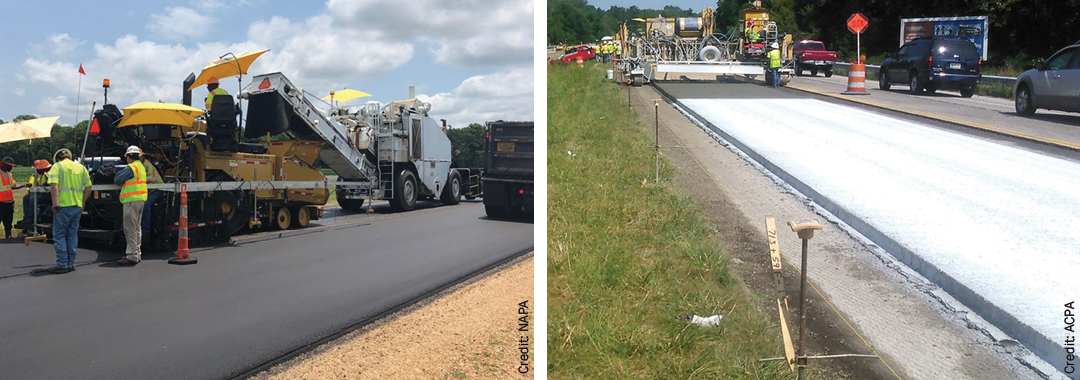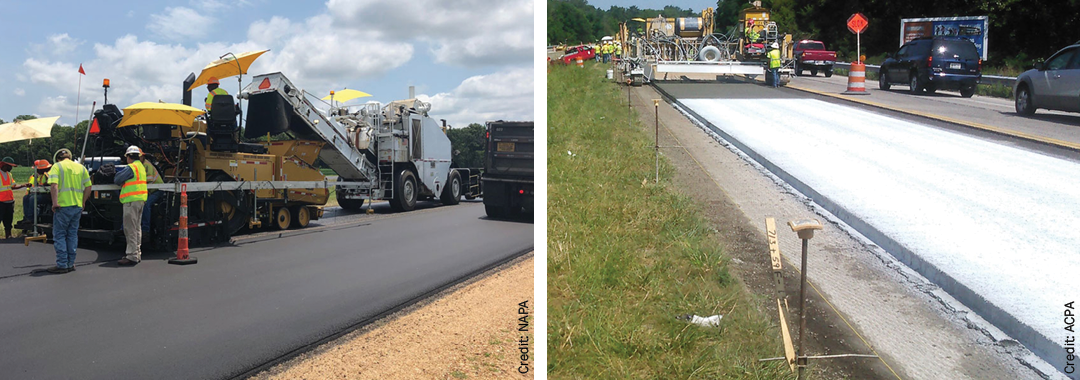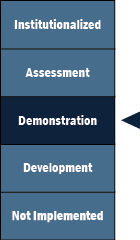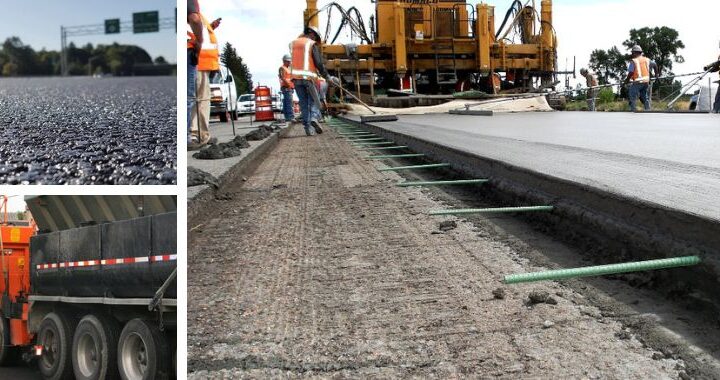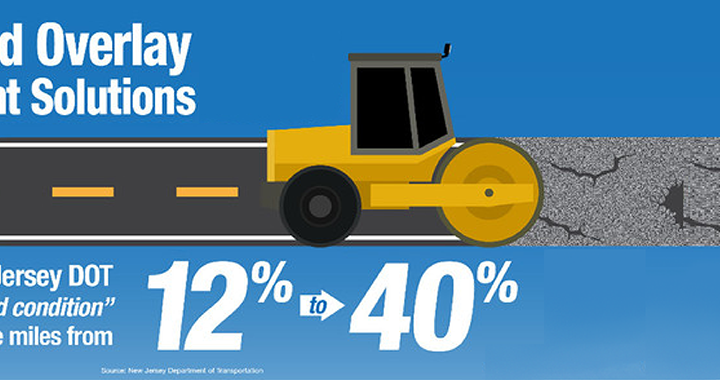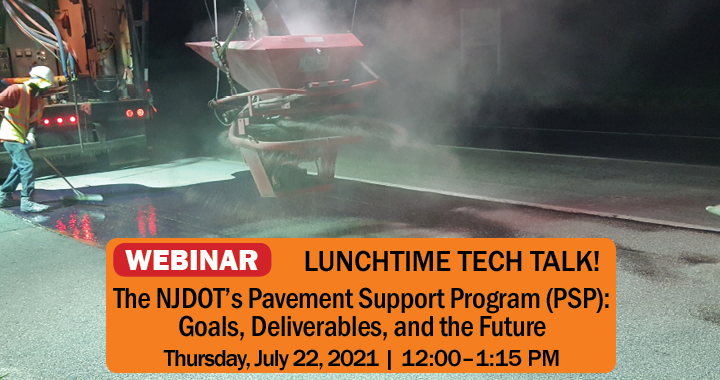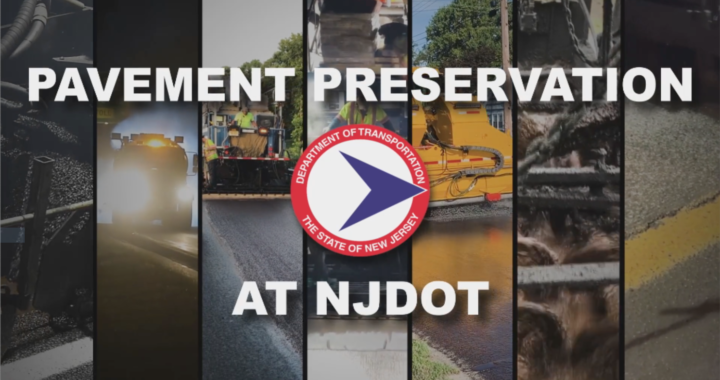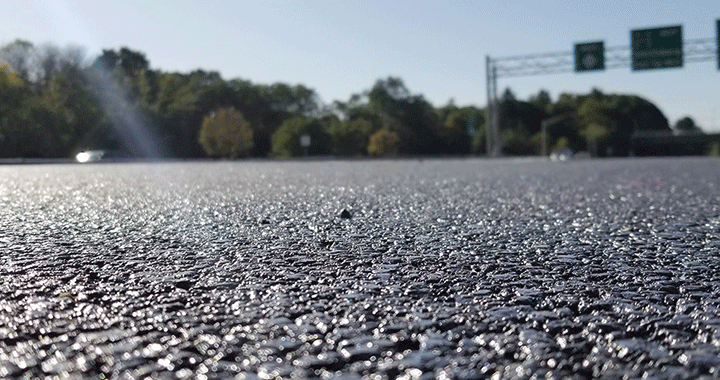What is Targeted Overlay Pavement Solutions (TOPS)?
Solutions for integrating innovative overlay procedures into practices that can improve performance, lessen traffic impacts, and reduce the cost of pavement ownership.
Approximately half of all infrastructure dollars are invested in pavements, and more than half of that investment is in overlays. By enhancing overlay performance, state and local highway agencies can maximize this investment and help ensure safer, longer-lasting roadways for the traveling public.
Improved Pavements that Last Longer
Many of the pavements in the nation's highway system have reached or are approaching the end of their design life. These roadways still carry daily traffic that often far exceeds their initial design criteria. Overlays are now available for both asphalt and concrete pavements that enable agencies to provide long-life performance under a wide range of traffic, environmental, and existing pavement conditions.
Concrete overlays now benefit from performance-engineered mixtures, including thinner-bonded and unbonded overlays with fiber reinforcement, interlayer materials, and new design procedures that improve durability and performance. Asphalt overlay mixtures have also advanced significantly with the use of stone-matrix asphalt (SMA), polymer-modified asphalt (PMA), and other materials and agents that reduce rutting, increase cracking resistance, and extend pavement life.
Benefits
Safety. Thousands of miles of rural and urban pavements need structural enhancement and improved surface characteristics, such as smoothness, friction, and noise. Targeted overlay pavement solutions can improve the condition of highways significantly in a relatively short time.
Cost Savings. Timely and well-designed overlay applications are consistently cost-effective because less subsurface work is required. In urban areas, impacts to utilities and pedestrian facilities are minimized.
Performance. Targeting overlay solutions to high-maintenance areas such as intersections, bus lanes, ramps, and curved alignments can pay immediate dividends in terms of reduced maintenance needs, fewer work zones, and improved safety.
Learn more about this EDC-6 Innovation.
Stage of Innovation:
DEMONSTRATION
(December 2022)
New Jersey has been a leader in Targeted Overlay Pavement Solutions (TOPS). The following activities occurred in under previous EDC rounds:
High-Performance Thin Overlay (HPTO). NJDOT incorporated HPTO into its standard specifications and has used it for the preservation of good pavement and as the surface course on some composite pavement overlays. HPTO is also used by the Structural Design unit for bridge deck overlay.
Crack Attenuating Mixture. NJDOT incorporated this into its standard specifications and has used it for the intermediate course on some composite pavement overlays followed by SMA surface course.
Stone Matrix Asphalt (SMA). NJDOT incorporated SMA into standard specifications and has used it for the surface course on high traffic pavement, for the surface course on some composite pavement overlays, and over top of BRIC mix as overlay of composite pavements.
Asphalt Rubber Gap-Graded (ARGG). NJDOT incorporated ARGG into its standard specifications and has used it for the surface and/or intermediate course on some composite pavement overlays.
Open-Graded Friction Course (OGFC). NJDOT incorporated OGFC into its standard specifications and has used it for full depth porous asphalt pavements in outside shoulders, parking lots, pathways, sidewalks and other low traffic pavements.
Ultra-Thin Bonded Wearing Course (UTBWC) / Ultra-Thin Friction Course (UTFC). NJDOT incorporated UTFC into its standard specifications and used it for preservation of good pavement and for the surface course on some resurfacing pavement overlays.
What’s Next?
The Rt.42 Pavement Preservation project, using Ultra-HPTO / Highly Modified Asphalt (HiMA), is in construction. The Department plans to monitor closely and analyze the pros and cons of utilizing this type of asphalt mixture on NJ concrete pavements.
NJDOT Pavement Management unit procured new skid testing equipment in 2022. Skid testing was done for 9 projects by NJDOT Pavement Management unit on High Friction Surface Treatment (HFST)sections. Skid testing by the NJDOT Pavement Management unit on high friction surface treatment sections and alternative enhanced friction overlay (EFO) sections will continue using the new equipment. There are plans to test, analyze, and monitor skid test results to advise the department on future development and use of enhanced friction overlay treatments. The Department is also working with an academic partner to perform companion testing of these friction test sections with a Dynamic Friction Tester (DFT) unit.
Ultra High Performance Thin Overlay is included in one project (UPC 213090). Specification is finalized and the item number has been created.
Compilation and analysis of all data on the different Enhanced Friction overlay surfaces, will lead to better information for NJDOT staff and others on the recommended use and practices with EFOs. Skid test equipment function and calibration are critical to collecting and analyzing the data. Other test methods will be explored.
Targeted Overlay Pavement Solutions (TOPS): NEW & NOTEWORTHY

